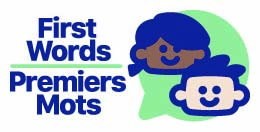
As the back-to-school preparations are ramping up, parents are thinking on how to best prepare their child for school. Parents all wonder how their little one will fair off. We secretly hope that everything we have done for them since birth will have given them the tools needed to continue to grow, learn and be ready for school.
Many skills contribute to a smooth transition to school and academic learning. However, strong language and literacy skills make it easier for children to learn core subjects, like reading and writing, at school. Language also helps your child make friends more easily, play understand the school routine and new rules and use their language skills to participate appropriately to the school routine.
Studies show that children with strong language skills do better at school. Daily activities such as routines, reading, playing, sharing, singing and even participating to chores are all great ways to help children understand and use language.
Routines, often dismissed as important for overall development, is in fact one of the greatest ways to promote speech and language development of our little one. When shared with a responsive and talkative adult, routines are perfect to lay the basic skills to help children get “ready for school”. In fact, these simple but daily routines set the stage for later learning at school.
Why are routines important?
Having routines at home prepares your children for the many new routines they will learn at daycare or at school. Routines are activities we do in the same order and in the same way almost every time. For example, a bedtime routine may include activities like: having a bath, putting on pajamas, brushing teeth, reading a story, turning off the lights.
Children thrive on routines. Why? Routines provide two key elements important to learning: strong relationships with a significant adult and loads of repetition.
When good (but flexible!) routines are put in place, children feel safe. Routines give parents the time needed to attend to their children’s needs. Predictable routines help children make sense of the world. Children have a better understanding of the next step and the expectations we have for them.
Routines also help prevent “melt-downs” (but it’s not foolproof) as they help your child expect the next transition. No need to be too rigid. Keep routines flexible and relaxed. Because life is unpredictable, routines may need to change.
What does my child learn from a routine?
Routines offer practice for various skills that are important to a child’s development, well-being, and learning. Research show that routines help kids:
- Understand and use language associated to the task, like time concepts (i.e. sequence: first, then, at the end).
- Plan and make predictions about the future.
- Develop executive functions: thinking, reasoning, planning.
- Feel independent. They are able to do a part of the activity by themselves after practising it over and over.
- Practice self-control by starting and finishing a task.
All those skills are language based. These important skills learned in simple routines will be used later by your child, at school, to learn, socialize, make friends, and participate fully to the classroom routine.
How can I use routines to promote my child’s speech and language development?
Parents, caregivers and educators can do many things to help their children get ready to learn. Spending time together, doing simple routines or chores., while talking, describing and explaining is all you need to stimulate your child’s communication development. Continue to grow children’s language and literacy skills in routines with these tips:
- Talk to the child during the routines (e.g., bath time, getting dressed, bedtime).
- Be face-to-face with the child. This helps the child connect socially and get additional information (from looking at your lips, non-verbal cues, gestures) from your conversation.
- Talk about the objects you are using. (e.g., towel, soap, clothes, pajama, bed)
- Talk about the actions you and your child are doing together (e.g., open the faucet, touch the water, get undressed, get into the water, lather up, etc.)
- Use words like “first, then/after, at the end” when you explain the steps involved.
- Provide simple verbal reasoning for accomplishing those routines (or chores!) every day (e.g., “We better put our dirty clothes in the hamper now. It will take us less time to do our room and so, we will get to the park earlier and play longer”).
This summer, set up clear routines to get your child ready to go back to daycare and to school. Remember, the language we use in day-to-day activities help children learn. Children learn best during social interactions in daily routines while spending time and playing with the people who are the most important to them: YOU!
By Roxane Bélanger, M.O.A., SLP-C, Reg. CALSPO
Speech Language Pathologist,
First Words Preschool Speech and Language Program of Ottawa and Renfrew County
Recognizing speech and language problems early on is the best approach!
Check out our First Words Communication Checkup tool to know if your child is meeting communication milestones. Refer online if necessary. For more information, visit http://www.firstwords.ca or call Ottawa Public Health at (613) PARENTS.
